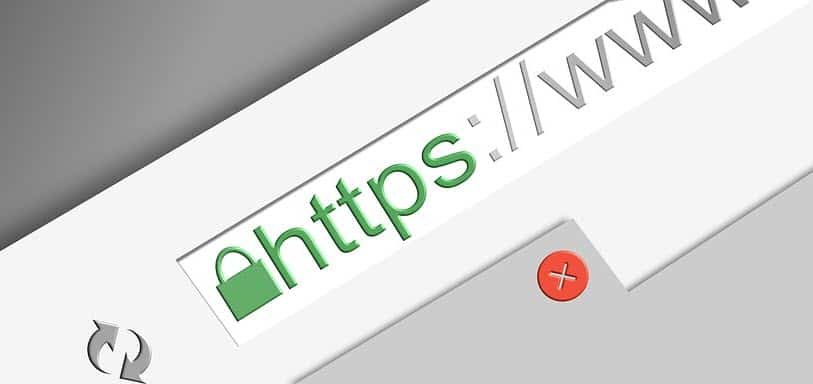In today’s digital realm, where data has become the currency of the modern world, safeguarding your website is paramount. Like an impenetrable fortress, SSL certificates are the guardians of your online presence, standing tall to ward off nefarious attacks and protect the delicate web of information that webs your digital empire. By fortifying your website with ironclad data encryption, SSL certificates become the ultimate shield, ensuring confidential communication, trustworthiness, and authenticity. In this article, we explore the intricate world of SSL certificates and delve into why they are the armor your website needs to brave the unpredictable landscapes of the internet. So, buckle up, dear reader, as we embark on this journey to shield your website with unwavering security – it’s time to harness the power of SSL certificates for unparalleled data protection.
Table of Contents
- Understanding SSL Certificates: What You Need to Know
- Ensuring Data Security: The Importance of SSL Encryption
- Choosing the Right SSL Certificate: Recommendations for Website Protection
- Best Practices for Implementing SSL: Safeguarding Your Online Data
- Q&A
- The Way Forward

Understanding SSL Certificates: What You Need to Know
SSL certificates are a crucial tool in ensuring the safety and security of your website. These digital certificates serve as a shield, safeguarding your valuable data from unauthorized access and potential cyber threats. In this post section, we will delve into the world of SSL certificates, breaking down everything you need to know about them.
1. What is an SSL certificate?
An SSL (Secure Sockets Layer) certificate is a small data file that encrypts the communication between a web server and a user’s browser. It ensures that any data exchanged, such as login credentials, credit card information, or other sensitive details, remain private and protected from prying eyes. This encryption is achieved by establishing a secure connection, creating a secure channel for data transmission.
2. Different types of SSL certificates:
– Domain Validated (DV) SSL certificates: These certificates verify the ownership of the domain and are perfect for basic encryption needs. They are easy to obtain and an excellent option for personal websites or blogs.
– Organization Validated (OV) SSL certificates: These certificates undergo more rigorous validation, verifying not only the domain but also the organization’s existence. OV certificates add an extra layer of trust by displaying the organization’s name in the certificate details.
– Extended Validation (EV) SSL certificates: The most premium and prestigious type of SSL certificate, EV certificates provide the highest level of assurance to visitors. Websites with an EV certificate display a green address bar in the browser, indicating that the website has undergone extensive verification and is highly secure.
By implementing SSL certificates on your website, you fortify it with ironclad data protection. With the increasing need for online security, SSL certificates have become a necessity rather than a luxury. So, take the necessary steps to shield your website and ensure your visitors’ trust by choosing the right SSL certificate for your needs.
Ensuring Data Security: The Importance of SSL Encryption
${color{blue}}$
In today’s digital age, data security has become paramount for any business operating online. One of the key measures you can take to safeguard your website and protect sensitive user information is by implementing SSL encryption. ${color{blue}SSL certificates}$ provide a robust layer of protection against unauthorized access, ensuring that all data transmitted between your website and users remains private and secure. Here, we explore the significance of SSL encryption and how it can shield your website from potential data breaches.
1. Trust and credibility: When your website is equipped with SSL encryption, it displays a padlock icon in the browser’s address bar, accompanied by the “https” protocol. These visual cues reassure users that their connection is secure and that their information is being encrypted. This fosters trust and instills confidence in your brand, encouraging users to engage and transact with your website without hesitation.
2. Data integrity and confidentiality: SSL encryption works through a complex cryptographic system that scrambles data before it is transmitted. This ensures that even if intercepted, the information cannot be deciphered without the unique encryption key. This is especially important when sensitive data, such as credit card details or personal identification information, is being exchanged. SSL encryption guarantees the privacy and secrecy of this data, preventing unauthorized entities from accessing or tampering with it.
3. Protection against phishing attacks: SSL encryption also defends against phishing attacks, where malicious individuals impersonate legitimate websites to deceive users into disclosing confidential information. With SSL, visitors can easily identify if they are on a genuine website or a fraudulent one. This is because SSL certificates are issued to specific domain names, confirming the authenticity of a website. Users browsing your secure website can trust that they are interacting with the genuine entity they intend to, reducing the risk of falling victim to phishing scams.
By implementing SSL encryption on your website, you not only secure your users’ data but also enhance your online reputation and protect your brand. Taking this crucial step towards ironclad encryption ensures that your website remains a fortress against cyber threats, thereby inspiring confidence in your users and establishing a safe online environment.
Choosing the Right SSL Certificate: Recommendations for Website Protection
When it comes to safeguarding your website, SSL certificates are an essential tool in your arsenal. These certificates provide an extra layer of protection by encrypting the data transmitted between your website and your visitors, preventing it from falling into the wrong hands. However, with so many options available, choosing the right SSL certificate can seem like a daunting task. Fear not, as we’ve got you covered with some recommendations to help you make the right choice.
First and foremost, consider the level of trust and assurance you want to offer your visitors. There are different types of SSL certificates available, each offering varying levels of validation. Domain validation (DV) certificates are the simplest and most affordable option, ensuring that your website is encrypted. Extended validation (EV) certificates, on the other hand, offer the highest level of assurance by displaying your organization’s name in the browser’s address bar, assuring visitors of your site’s authenticity. Consider your website’s purpose and the level of trust you wish to establish with your audience to make an informed decision.
- Wildcard Certificates: If you have multiple subdomains or plan to expand in the future, a wildcard certificate may be the way to go. With a single wildcard certificate, you can secure your main domain as well as an unlimited number of subdomains. This eliminates the need to purchase and manage individual certificates for each subdomain, saving you time and money.
- Multi-Domain Certificates: For websites with multiple domains, such as an ecommerce platform, a multi-domain certificate offers a cost-effective solution. With a single certificate, you can secure up to hundreds of different domains, simplifying the management and providing comprehensive protection for your online business.
- Free Certificates: If cost is a major consideration, there are also free SSL certificate options available, such as Let’s Encrypt. While these certificates provide basic encryption, they may not offer the same level of validation and trust as paid certificates. Consider the trade-offs and the needs of your website before opting for a free certificate.

Best Practices for Implementing SSL: Safeguarding Your Online Data
SSL (Secure Sockets Layer) certificates play a crucial role in ensuring the security and integrity of your online data. By implementing SSL on your website, you create a robust shield that protects sensitive information transmitted between your website and your users. Here are some best practices to consider when implementing SSL, ensuring ironclad data encryption and safeguarding your online data.
1. Choose the right SSL certificate: There are different types of SSL certificates available, such as domain validated (DV), organization validated (OV), and extended validation (EV) certificates. Each offers different levels of security and authentication. Determine the certificate that aligns with your website’s needs and provides the necessary level of trust for your users.
2. Keep your SSL certificate up to date: SSL certificates have an expiration date, typically ranging from one to three years. It is crucial to keep track of these expiration dates and renew your certificate before it expires. Outdated or expired certificates can lead to security warnings or even a complete loss of trust from your users.
3. Ensure consistent SSL usage: Once you have implemented SSL on your website, it is important to ensure that it is used consistently across all pages. Consistent usage means that every page, including subdomains, are secured with SSL encryption. This practice guarantees the privacy and security of all data exchanged between your website and your users.
4. Implement HTTP Strict Transport Security (HSTS): HSTS is an added security measure that ensures your website always uses HTTPS (HTTP secure) instead of regular HTTP. By enforcing HTTPS, you eliminate the risk of users accidentally accessing your site through an insecure connection.
By following these best practices, you can establish a strong defense against online threats and protect the confidentiality of your users’ information. With SSL certificates and proper implementation, your website becomes an impenetrable fortress, providing peace of mind to both you and your visitors.
Q&A
Q: What is the main purpose of SSL certificates for a website?
A: SSL certificates are primarily designed to ensure ironclad data encryption and provide a secure connection between a website and its users.
Q: Why is data encryption important for websites?
A: Data encryption is crucial as it prevents unauthorized individuals from accessing sensitive information transmitted between the website and its users. It safeguards personal details, financial data, and other confidential information from falling into the wrong hands.
Q: How does an SSL certificate work?
A: An SSL certificate establishes a secure connection between a user’s web browser and the website they’re visiting. It does this by encrypting the data shared between the user and the website, making it unreadable to anyone trying to intercept it.
Q: What are the visual signs that indicate a website is secured with an SSL certificate?
A: When a website has an SSL certificate, it is indicated by a padlock icon in the web browser’s address bar. Additionally, the website’s URL will start with “https” instead of “http,” where the ‘s’ stands for secure.
Q: Are all SSL certificates the same?
A: SSL certificates come in different types and levels of validation. While all SSL certificates provide encryption, some are more rigorously validated to provide higher levels of assurance to website visitors. These variations allow website owners to choose a certificate that best suits their specific needs.
Q: Are SSL certificates only important for websites handling sensitive information?
A: While SSL certificates are crucial for websites that handle sensitive information like passwords, financial data, or personal details, they are increasingly becoming essential for all websites, regardless of the data they handle. This is because SSL certificates not only protect user data but also build trust with visitors, boosting overall credibility.
Q: Are SSL certificates difficult to install on a website?
A: Installing an SSL certificate can be a complex process, but many web hosting platforms and domain registrars now offer user-friendly interfaces to simplify the installation. Additionally, website owners can seek assistance from web developers or consult SSL certificate providers for guidance.
Q: Do SSL certificates slow down website performance?
A: While SSL encryption adds a layer of data protection, it may cause a slight decrease in website performance. However, advancements in SSL technology have significantly minimized this impact, and most users won’t notice any significant difference in page loading speed.
Q: Can SSL certificates protect against all types of security threats?
A: While SSL certificates play a vital role in securing data during its transmission, they are not a comprehensive solution for all security threats. Other security measures like strong passwords, regular software updates, and firewalls are essential to fortify website security and protect against various types of threats.
Q: How often should SSL certificates be renewed?
A: SSL certificates typically have an expiration date, usually ranging from one to three years. It is crucial to renew the certificate before it expires to ensure uninterrupted security. Many certificate authorities offer automatic renewal options to make the process hassle-free for website owners.
Q: Can SSL certificates be transferred between different websites?
A: SSL certificates are typically issued for specific domain names, so they cannot be directly transferred between different websites. Each website requires its own SSL certificate to establish a secure connection. However, some SSL certificate providers may allow for certificate reissuance if necessary.
The Way Forward
In this digital age where cybersecurity threats loom around every corner, safeguarding your website has become more important than ever. The armor of choice? SSL certificates, the ultimate shield for ironclad data encryption.
With an SSL certificate in place, your website gains an impenetrable fortress, protecting your users, their sensitive information, and your online reputation. The digital world can be a treacherous battlefield, but fear not – SSL certificates are here to turn the tides in your favor.
Imagine your website as a fortress, standing tall amidst a sea of potential invaders. SSL certificates, like cunning knights, are strategically positioned within the inner walls of your digital stronghold. As the gatekeepers of encryption, they stand ready to safeguard the treasures held within your website.
In this hostile landscape, hackers and cybercriminals launch arrows of deceit, hoping to infiltrate your defenses. But fear not, for your SSL certificate raises an impenetrable shield, intercepting these malicious attempts with ease. Like a mythical creature, your website becomes immune to their advances.
Every visitor who steps foot within your fortified website feels a comforting embrace, a sense of security that their private information remains hidden from lurking eyes. The power of encryption washes over them, empowering their trust and ensuring their connection is encrypted, like a secret code only known to them and your website’s protecting agents.
Behind the scenes, your SSL certificate silently encrypts the data exchanged between your website and its visitors, translating it into an unreadable language for anyone who dares to intercept. This cryptographic dance of protection ensures that sensitive details such as credit card information, passwords, and personal data remain shrouded in a digital cloak of invisibility.
Embrace the power of SSL certificates and give your website the fortress it deserves. In this never-ending battle for online security, let your website stand as a shining example of impenetrable defense. Shield your users from the arrows of cyber threats, and watch as trust and loyalty grow within their hearts.
So, venture forth into the vast digital realm, armed with SSL certificates. Let the world know that your website is not just another vulnerable target; it is a force to be reckoned with. Let the ironclad data encryption protect you and your users. Secure their trust, secure their data, and rest assured that your website stands tall and unbeatable.

